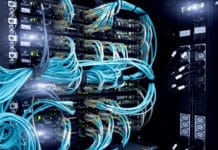IBM today introduced a powerful, next-generation enterprise storage server that delivers self-managing and self-healing technology features from IBM’s Project eLiza.
According to IBM, the new servers which are powered by IBM’s copper microchips and 2-Gigabit-per-second (Gbps) Fibre/FICON data transfer rates, deliver superior system throughput and performance over comparably equipped competitive systems. The new models, called the 800 and 800 Turbo, also enable “on the fly” configuration and management capabilities designed to help lower TCO.
The 800 is designed to provide ESS customers with:
- Industry-leading data transaction processing performance designed to meet the needs of financial institutions, retailers, manufacturers and any business with heavy on-line transaction demands.
- “Smart” software technology introduced as part of IBM’s
Project eLiza initiative to create intelligent IT systems
capable of managing, protecting and healing themselves
automatically. - Industry leading database performance for applications like
data warehousing and Business Intelligence - A 50 percent increase in data back-up
capability over the previous model. - Significantly improved remote copy performance for disaster
recovery and unplanned business disruption — up to 125
percent faster than the previous model.
“With IBM’s new Shark, we have significantly increased performance and tripled our storage capacity, while reducing our cost to manage information,” said Joe Giacometti, senior vice president of Information Technology at Ahold, which operates some of the largest retail grocery store chains in the world. “We selected Shark because of its superior technology to that of EMC and HDS. This technology has allowed us to better manage our information and provides us the flexibility to address our changing business needs. We’ve been able to reduce the time to market for new applications because of Shark.”
The Model 800 offers many new features, including a “turbo” configuration that efficiently handles up to 150 percent more workload, an expanded 64 gigabyte (Gb) internal cache, increased internal bandwidth, Redundant Array of Independent Disk (RAID) level-10 data mirroring and striping for performance in high demanding applications.
“Our new ESS sets a new standard for performance that builds on IBM’s commitment to delivering storage products loaded with technology innovation and leading with open industry standards,” said Linda Sanford, senior vice president and group executive, IBM Storage Systems Group. “The fact that our customers have placed over 10,000 Enterprise Storage Servers at the heart of their e-business infrastructures confirms that we made the right choices when the product was first introduced less than three years ago. ESS will remain the centerpiece of our storage family and we will continue to improve and enhance its performance.”
The Model 800 is available with a variety of disk drive options. In addition to standard 72.8 GB drives, IBM offers 15,000 RPM disk drives in both 18.2 and 36.4 GB capacities, supporting higher data throughput and performance. The higher-speed drives can increase random read and random write data throughput workloads at significantly higher access densities and achieve improved service time advantages.
The 800 will be generally available on August 16, 2002.





